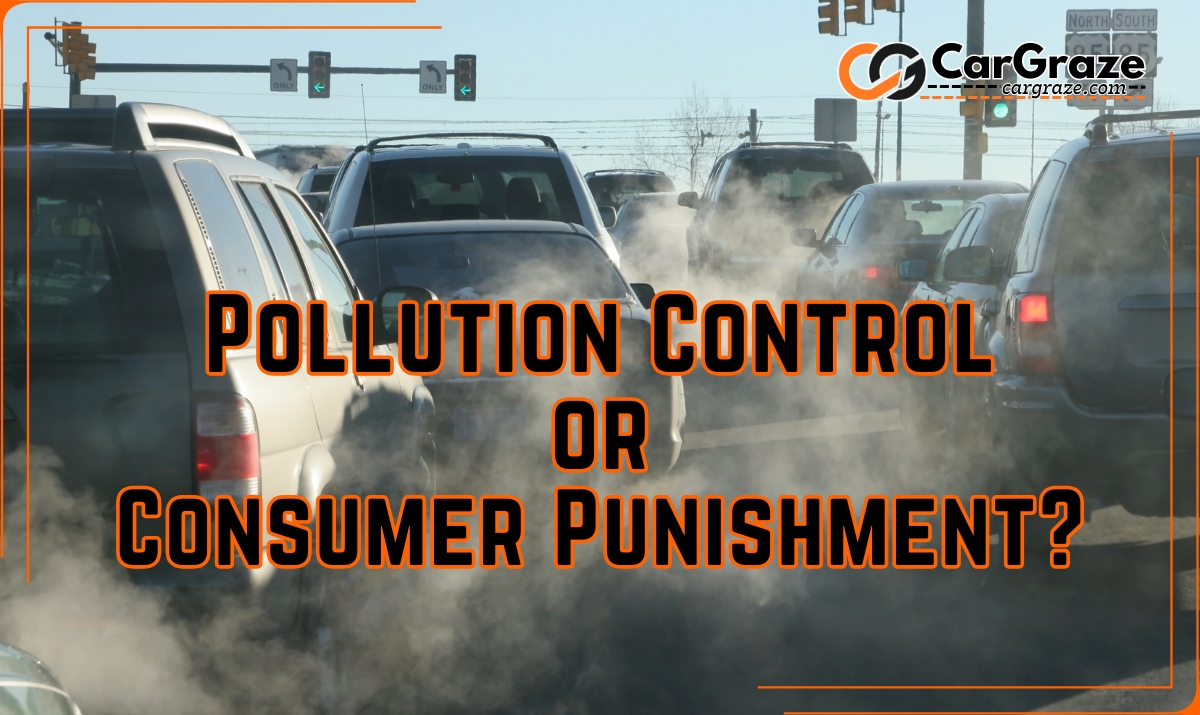
The Debate Over Scrapping Old Cars in Delhi-NCR: Consumer Rights vs. Pollution Control
Think this: an old Santro or a Honda CR-V being hauled away to scrap, sometimes without prior notice. This is becoming a common scene in Delhi-NCR. The root of this policy is simply to control rising air pollution. However, it's a double-edged sword, raising questions about consumer rights, financial loss, and practicality.
Let’s see why this rule exists, its implications, and how it contrasts with global practices.
The Age Limit Policy: A Timeline
The issue started gaining momentum in 2014 when the National Green Tribunal (NGT) recommended scrapping diesel vehicles over 10 years old and petrol vehicles over 15 years old. The Supreme Court reinforced this recommendation in 2018 to combat Delhi’s air pollution.
The policy aims to address the staggering statistic that vehicles contribute 38% of Delhi’s pollution, as per IIT Kanpur studies. Since its implementation, over 50 lakh vehicles have been deregistered in Delhi-NCR. But here's the despite such drastic measures, pollution levels have only dropped by 4% over five years.
Landmark Judgments and Consumer Dilemmas
In 2021, a Delhi resident contested the scrapping of his 15-year-old motorcycle in court, citing sentimental value. While the magistrate upheld the scrappage order, the Sessions Court allowed him to keep the vehicle on one condition: it must remain parked on private property and not on public roads.
This judgment highlights a critical issue many Delhi-NCR residents have private parking spaces? The region’s densely packed housing leaves little room for such luxuries. This limitation often forces owners to park on streets, making their vehicles easy targets for scrapping.
The Global Perspective
India’s stringent policy stands in stark contrast to other nations.
- China: Focuses on emission standards rather than age, offering rebates to vehicle owners who voluntarily scrap high-polluting cars.
- US, Germany, UK, and France: Implement voluntary scrapping policies and periodic emission tests, allowing older vehicles to stay on the road if they pass.
- Import-Dependent Nations: Countries like Egypt and Nigeria impose restrictions only on the import of old vehicles, not their use.
This shows that India's age-based approach may not be the most efficient way to tackle pollution.
Financial and Emotional Costs of Scrappage
For residents of Delhi-NCR, the financial loss is immense. For instance, the resale value of a diesel car over 10 years old is almost negligible. According to India Today, the annual destruction of vehicles is valued at ₹2,300 crores in Delhi-NCR alone.
Classic car enthusiasts face another setback. Globally, cars older than 35 years often appreciated, becoming collector’s items. But India’s policy eradicates this potential, leaving owners with no option but to scrap vehicles that could have fetched a premium in the future.
A Push Towards Electric Vehicles
By eliminating old internal combustion engine (ICE) vehicles, the government is nudging citizens toward electric cars. While this aligns with a greener future, it comes with its challenges:
- Higher Costs: EVs are significantly more expensive than ICE cars, making them inaccessible to many.
- Underdeveloped Infrastructure: India’s EV ecosystem is still in its infancy, with insufficient charging stations and support systems.
Beyond Vehicles: Tackling the Real Culprits of Pollution
While vehicles are a contributor, they are not the sole culprits. Stubble burning in North India is a significant cause of winter smog, yet it receives comparatively less attention. Strengthening the CNG infrastructure and addressing industrial emissions could yield better results without such heavy financial and emotional costs on vehicle owners.
Conclusion: Striking a Balance
The current scrappage policy, while well-intentioned, needs re-evaluation. A shift towards emission-based regulations, coupled with better public transport and incentives for cleaner fuels, could offer a more balanced approach.
As citizens, it’s essential to voice these concerns and push for policies that are both environmentally and economically sustainable. What are your thoughts? Share them in the comments below!



Comments